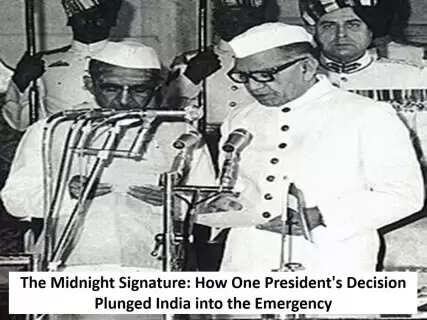
Late on the night of June 25, 1975, a single signature on a piece of paper altered the course of Indian democracy. That signature belonged to Fakhruddin Ali Ahmed, the fifth President of India. At the behest of Prime Minister Indira Gandhi, he signed the proclamation that declared a National Emergency, a decision that remains one of the most controversial and criticized actions by a head of state in the nation's history.The declaration of the Emergency was not a collective government decision. In a stunning departure from democratic convention, President Ahmed acted solely on the advice of the Prime Minister, without waiting for—or demanding—the formal, written approval of the Union Cabinet. This move effectively allowed one leader to suspend the fundamental rights of millions of citizens, leading to the arrest of opposition leaders, severe press censorship, and the silencing of all dissent.Critics argue that this was the moment the President failed his most sacred duty: to act as the guardian and conscience-keeper of the Constitution. While the President is bound by the advice of the council of ministers, the established norm was that such a grave step required the entire cabinet's consensus. By not questioning the unprecedented request or insisting on proper procedure, President Ahmed's actions were seen by many as reducing the nation's highest office to a mere "rubber stamp."He could have chosen a different path. He could have insisted on seeing the written recommendation from the full Cabinet, a move that would have forced a discussion and perhaps even altered the outcome. This failure to provide a constitutional check on the executive's power is a stark lesson in the fragility of democratic institutions.The political firestorm that followed this dark chapter led directly to a crucial, permanent change in Indian law. The 44th Amendment to the Constitution, passed in 1978, made it mandatory for the President to have a written recommendation from the Union Cabinet before an Emergency can be declared. This safeguard was created specifically to ensure that no future President could be pressured into making such a monumental decision based on the advice of a single individual.Today, the actions of President Ahmed serve as an enduring reminder of the immense responsibility vested in the President's office and why its independence is a cornerstone of India's democracy.
Around the web

